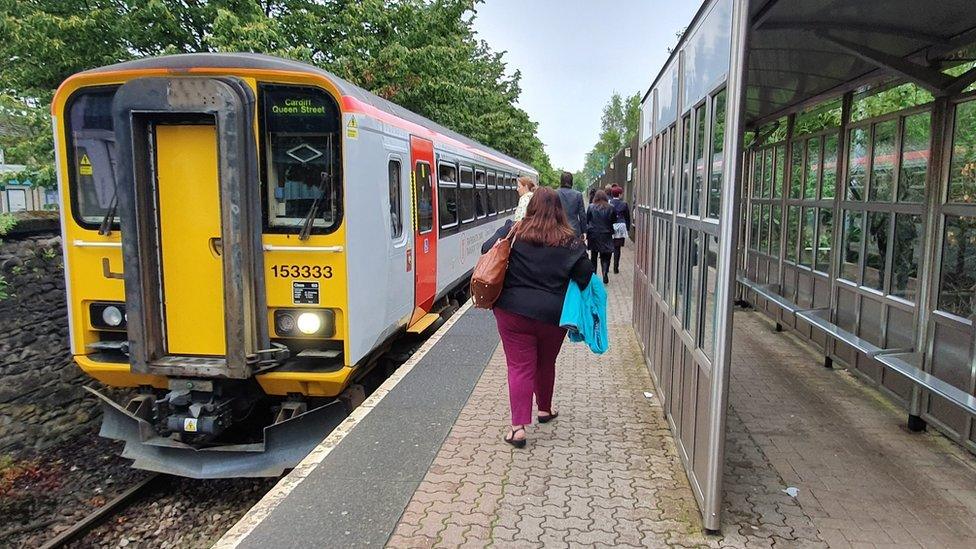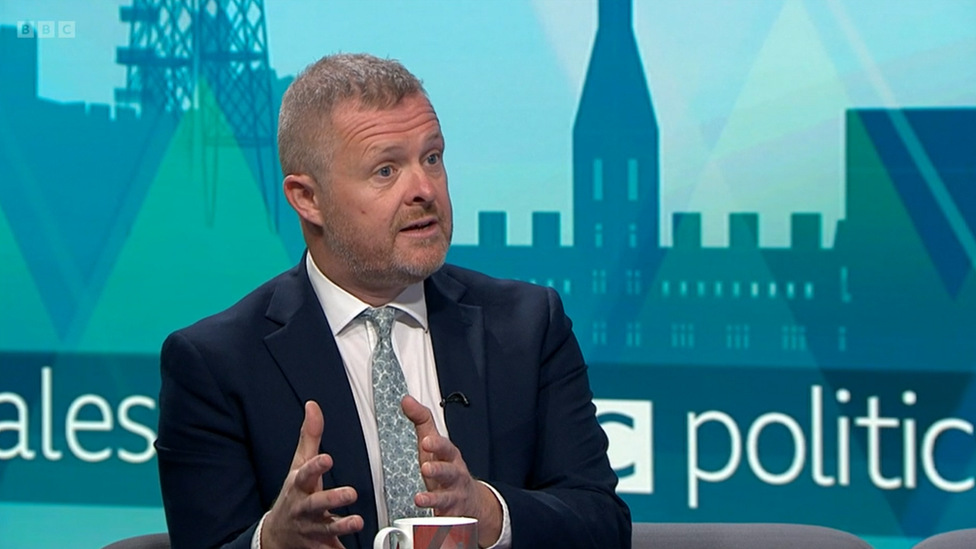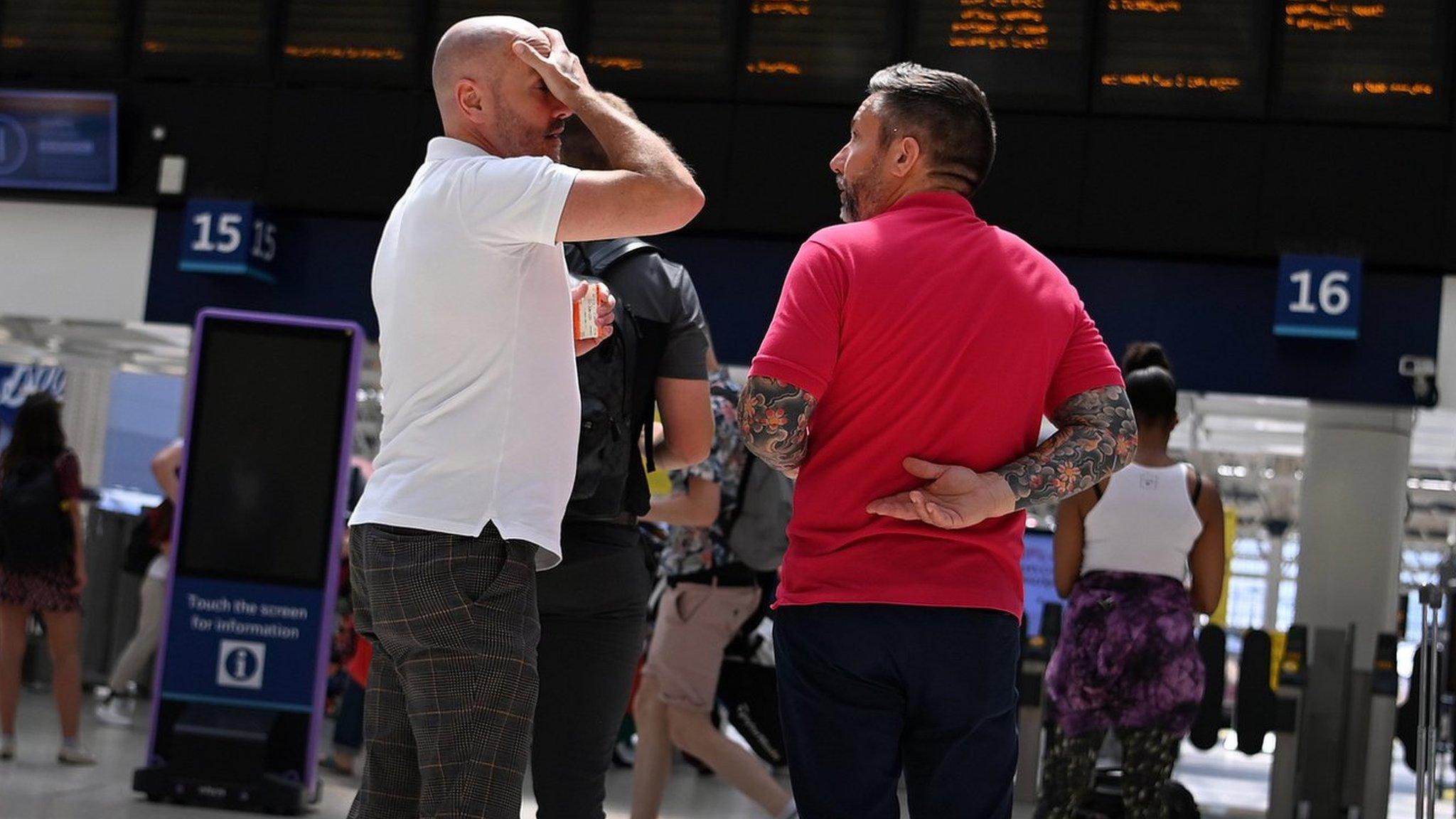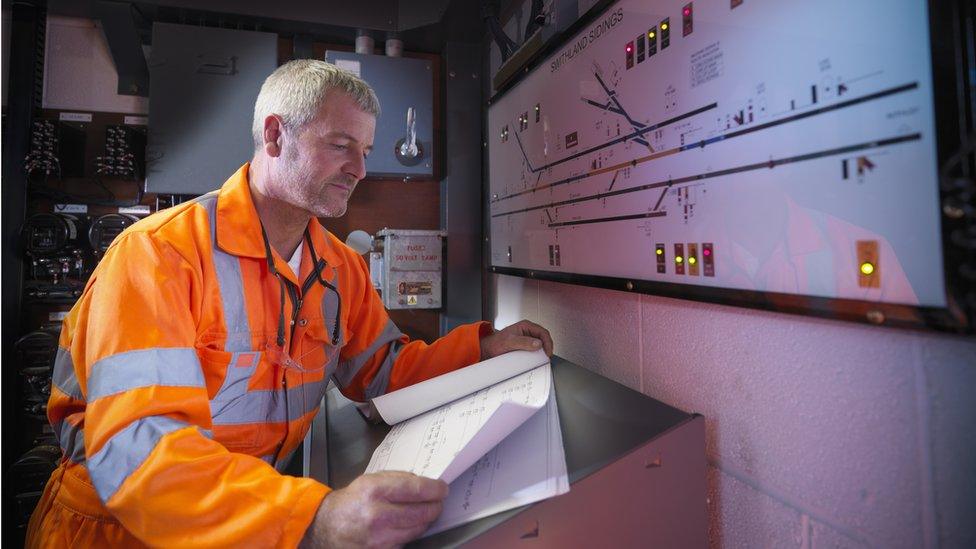Rail strikes: Take all steps to avoid action, minister says
- Published

Disruption is also expected on non-strike days
Striking rail workers have not been left with many options, according to a Welsh government minister.
Jeremy Miles said no-one "wants to see strikes" and urged the UK government to "take all steps" to stop the action.
The UK government's transport secretary accused unions of "jumping the gun".
A handful of routes will run in Wales on strike days - 21, 23 and 25 June with Transport for Wales (TfW) services from Radyr, in Cardiff, to Treherbert, Merthyr Tydfil and Aberdare.
A replacement bus service will take passengers from Radyr to Cardiff Central.
Great Western Railway's (GWR) Cardiff to Severn Tunnel route is the only other service that will run.
Disruption is also expected on non-strike days.
Although TfW is not in dispute with the National Union of Rail, Maritime and Transport Workers (RMT), it will be unable to run the vast majority of its services because of striking Network Rail staff who, for example, work as signallers on the track.
Network Rail, which is the responsibility of the UK government, plans to cut 2,500 maintenance jobs as it tries to make £2bn of savings over the next two years.

"Nobody wants to see strikes, not even the unions, but the UK government needs to now step up," said Mr Miles
The RMT said the jobs were critical for safety, and cutting them would make accidents more likely.
Network Rail said it would not consider any changes that would make the railways less safe and modernisation was needed.
Speaking on the BBC Politics Wales programme, Education Minister Mr Miles, a Member of the Senedd (MS), said the Welsh government was "obviously pleased" TfW staff were not striking.
TfW was brought under Welsh government control in 2021.
"Clearly the strikes elsewhere will have a significant disruptive impact in Wales and we are asking the UK government to do everything to avoid that disruption," said Mr Miles.
"When people are put in the position that the UK government have, people don't have many options.
"Nobody wants to see strikes, not even the unions, but the UK government needs to now step up," he added.
RMT representative and Wales TUC president, Brendan Kelly, told Politics Wales his union was "available 24/7 for productive, meaningful talks".
"What's happened is a breakdown in those talks because Network Rail didn't bring anything really substantive to the table.
"We have much better relationship with Welsh government, much better relationship with Transport for Wales.
"We're increasing jobs in the railway and they have also given a commitment around no compulsory redundancy... because they see railways as a cornerstone and an important part of a growing Welsh economy.
"So, it's a political choice... Westminster are making a political choice to make these cuts."
He also said there could "potentially" be further strikes over the summer, as the TSSA union prepared to ballot more than 6,000 Network Rail staff from Monday.
'Really unfortunate'
Conservative Senedd Member Tom Giffard told Politics Wales it was "really unfortunate these strikes are going ahead".
"Network Rail and the [UK government's] Department for Transport had said that negotiations had barely started before the unions started balloting to strike...and the timing of this strike was just to maximise disruption as best it could.
"It's not so much about cuts, it's about changing the way the rail system in the UK works," the MS for South Wales West added.
"So, for example, there are ticket booth and operators that barely sell a ticket but they're fully manned and fully staffed around the clock and that probably isn't realistic in an era where people are using apps on their phones to buy tickets.
"Unfortunately, the unions are just stuck in the past on this one."
- Published9 May 2024

- Published19 June 2022

- Published14 June 2022
